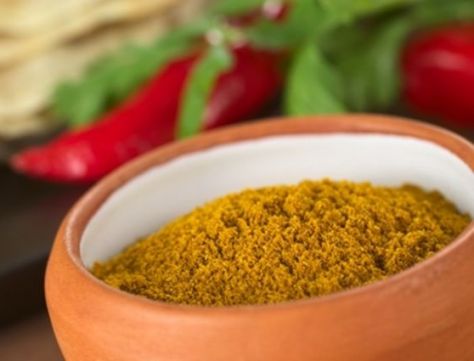Curry: nutritional benefits and contraindications
The curry is a combination of spices with many therapeutic effects. What are the nutritional benefits? Let’s see what the use of the curry brings us, but also its contraindications for a reasonable and healthy consumption.
The curry, among its many properties, antineoplastic (anticancer), anti-inflammatory, antibacterial and is able to counteract the swelling due to its beneficial effects on the gut. Do not underestimate nor its nutritional properties and its healing effects, so you can say that the curry is beneficial for our body. Moreover, we must not overlook another of their properties, and the curry is an excellent slimming. Just do not overindulge in its consumption in moderation is the key, because, as discussed below, may have contraindications.
Table of Contents
Beneficial properties of curry
One of the main properties of curry is that can be highly therapeutic. This spice blend can have beneficial effects in reducing the risk of tumors. In particular, we should mention one of its components, curcumin, the active ingredient of turmeric. Curcumin is able to inhibit the transformation of normal cells into cancer cells.
Furthermore, it is also capable of blocking the synthesis of molecules involved in inflammatory processes. In this sense, we can say that the curry exerts an anti-inflammatory action and helps dilate blood vessels and therefore to counteract cholesterol. Curry is also beneficial to the stomach, increasing levels of gastric juices, proving particularly effective against intestinal problems or discomfort such as gas or bloating.
The mixture of curry herbs also plays a very important in regulating the intestinal flora and control antibacterial infections. The curry, if that were not enough, also has slimming properties, so that you can include it in a low calorie diet. Its ingredients slow the feeling of hunger and combat fluid retention, one of the factors for the appearance of unsightly cellulite (may appear by sudden changes in weight).
Nutritional properties of curry
There are many nutritional benefits of eating curry for our body. Thus, one hundred grams of curry contains 60% carbohydrate, 10% protein and 30% fat. As for the calories, it’s good to remember that one hundred grams of this product contains 325 calories. Curry is also rich in many vitamins, such as vitamins A, B, D, E and vitamin K. To this must be added to its content of minerals and antioxidants, beneficial to counteract the effects of free radicals, causing cellular aging.
Contraindications of curry
The curry may also have contraindications. Thus, by its content in peppers, is best avoided in cases of gastritis and gastric ulcers, while the chili can increase the risk of irritation, which also affects the urinary tract. Do not forget that turmeric is able to stimulate the secretion of bile acids, so it shouldn’t be consumed in case of kidney stones. The curry can be eaten during pregnancy, but should be avoided during breastfeeding. The red pepper and pepper, two of its ingredients, form a mixture which provides capsaicin and could be a spicy flavor to breast milk.
